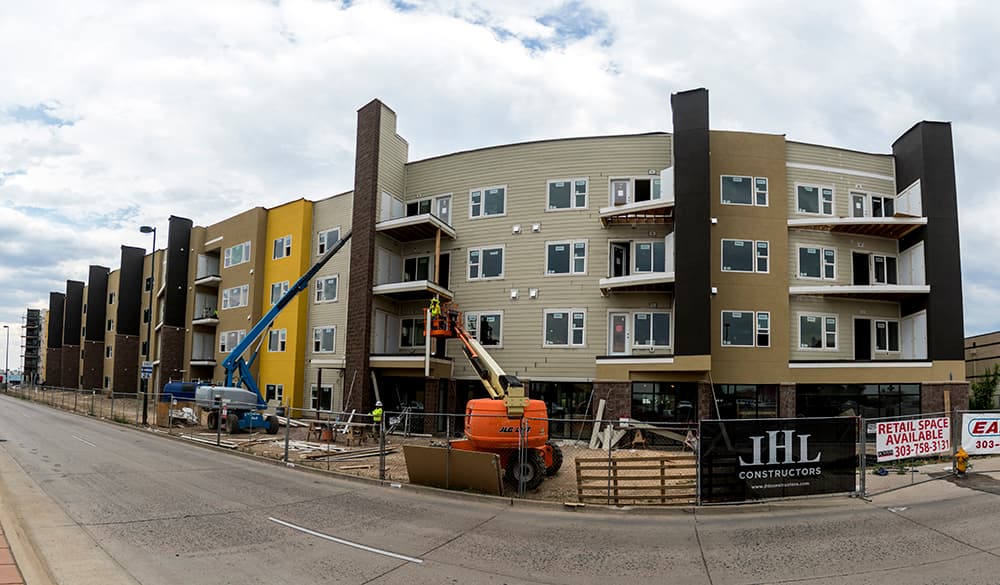You'd think affordable housing wasn't tough enough in its own.
Four state lawmakers discussing that conundrum on a bright fall Park Hill morning also touched on human psychology, immigration reform and TABOR.
The Urban Land Conservancy, a nonprofit that buys lots so others can use them to build affordable apartments as well as libraries, recreation centers and other community building blocks, convened the bipartisan panel of legislators to address what ULC board chair Anne Garcia called "one of the most important issues of our day."
It's not that House Majority Leader Rep. KC Becker, Sen. Beth Martinez-Humenik, Rep. Cole Wist and Sen. Rachel Zenzinger were ducking the issue as they sat before a wide window with a view of a brown-brick, low-income apartment complex built on ULC land. Their conversation was wide-ranging because housing touches on so many aspects of our lives. That includes the traffic that held up some of the participants Monday. As moderator Kathi Williams, herself a former state representative, pointed out, people searching for homes they can afford are forced to move further and further from jobs in the city center, putting more cars on the state's already strained highways.
The discussion was held in a gym-turned-conference room at the Dahlia Campus of the Mental Health Center of Denver, which has been working to draw attention to the difficulties that people with disabilities, including mental illness, have finding places to live.
The Taxpayer’s Bill of Rights, the 1992 state constitutional amendment known as TABOR that constrains lawmakers when it comes taxing and spending, came up when Williams asked the panelists about the chances of the state creating a fund to be used to support housing initiatives. Short answer: the chances are slim.
"We are somewhat limited on sources of funding," said Zenzinger, the Jefferson County Democrat.
Centennial Republican Wist said he was "open to having the conversation" about diverting money from marijuana taxes to housing. Those funds are earmarked to schools, mental health and drug education, though some have been used shelter the homeless.
Becker, a Boulder Democrat, said she'd looked at using money for housing from the state's unclaimed property fund. But she said that would involve transferring money from something not subject to TABOR rules to something that is.
"We can't do it in a TABOR year, and we're there now," she said. "We'll be doing refunds this year."
It was also Becker who brought up immigration, when the discussion moved to the high construction costs that factor into the price of housing. Becker said current immigration policies were "scaring people away from our state" who might otherwise expand the workforce. Labor scarcity contributes to the time and money it takes to build homes in Colorado.
"If we actually want to solve our affordable housing crisis ... having sensible immigration laws is the best place to start," Becker said, earning applause from the developers, bankers and nonprofit representatives who comprised the audience.
The lawmakers talked about what government, business, schools and others could do.
"Affordable housing and having housing where people work is a value that we all share," Wist said, calling for "public-private partnerships to try to solve these problems."
Martinez-Humenik, a Thornton Republican, said getting communities to support public spending and development was crucial and not always easy. She said the phrase affordable housing was off-putting to some.
"We need to get rid of the perception that attainable housing is like the projects they've seen on television in other cities," she said.
Zenzinger weighed in on the psychology with an example of an affordable complex that was dubbed "workforce housing."
"The perception in the community is that ... those people have jobs," she said.
Martinez-Humenik offered women caring for children at $11 an hour as an example of people with jobs who struggle to find decent housing.
"They need someplace to raise their children too that's affordable," she said.













